
Does Your Horse Need Probiotics?
Probiotics might help reestablish healthy balances in the horse’s gut microbiome without causing harm.

Probiotics might help reestablish healthy balances in the horse’s gut microbiome without causing harm.
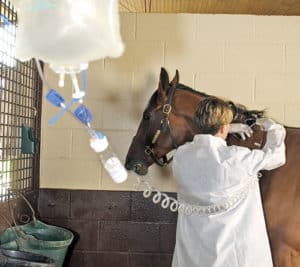
Learn to navigate the murky waters of diagnostic testing for this zoonotic disease.

Chronic diarrhea can be very frustrating for horse owners and veterinarians to treat. An equine nutritionist offers advice for handling these challenging cases.

Diarrhea in adult horses can be life-threatening, so it is important for horse owners to know when to call their veterinarian and when to wait.

Discover how each region of your horse’s digestive system works in this visual guide.

Equine digestion is full of twists and turns, and a lot can go wrong during the process. Learn how colic, diarrhea, ulcers, and other ailments can affect your horse’s GI tract and what steps to take to optimize his digestive health.

Horses can give us plenty of cues when they’re dealing with early illness. To help you recognize them and intervene accordingly, we’ve put together this 10-point list of warning signs.
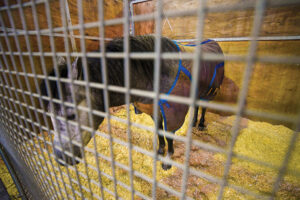
Discover why supportive care and dietary management are paramount for positive outcomes in acute colitis cases.

Signs and tests that can help you and your veterinarian quickly identify the various causes of foal diarrhea.
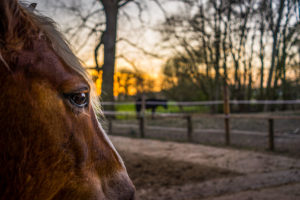
Learn what steps you and your veterinarian can take to get to the bottom of subtle horse health problems.

Horse manure is rich not only in energy and soil-building nutrients, but also information about your horse’s health and well-being. In this article, veterinarians offer guidelines to help you better “read” your horse’s poop.
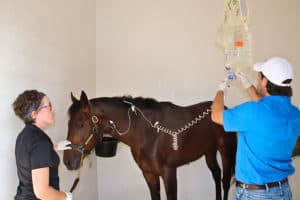
Colitis is inflammation of the large or small colon that can lead to diarrhea, proliferation of harmful bacteria, and even death in severe cases.
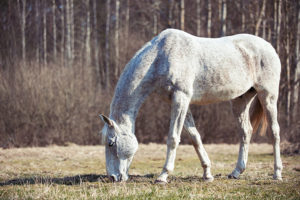
Hospitalized geriatric horses that recovered from severe colitis showed positive changes in their gut microbiota after receiving diluted feces from healthy horse donors.

Researchers found horses treated with antibiotics have significantly less diversity (fewer bacterial species) in their GI microbiomes than healthy horses.

British researchers reviewed more than 150 equine microbiome studies. From colic to laminitis to pregnancy, here’s what they found.

If ECoV tests are positive and a horse is showing classic clinical signs of the disease, including colitis, fever, and lethargy, vets can safely assume he has equine coronavirus disease without further testing.
Stay on top of the most recent Horse Health news with
© 2022 Copyright Statement dolor sit amet, consetetur sadipscing User Terms, sed diam nonumy eirmod tempor invidunt ut labore et dolore magna aliquyam erat, sed diam voluptua. At vero eos et accusam et justo duo dolores et ea rebum. Stet clita kasd gubergren, no sea takimata sanctus est Lorem ipsum dolor sit amet.
"*" indicates required fields